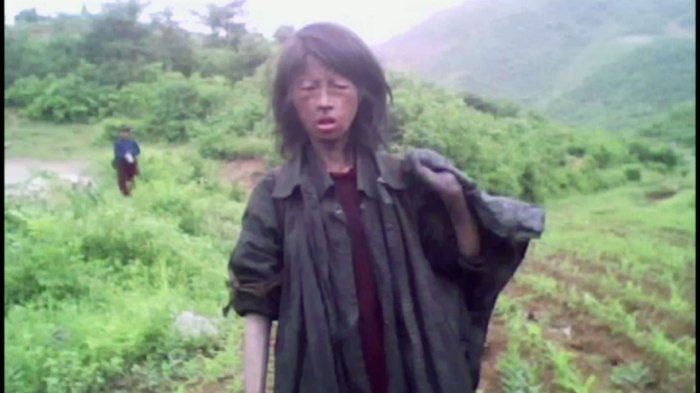Frontline Secret State of North Korea Documentary Answers uncovers the enigmatic and oppressive regime of North Korea, shedding light on its systematic human rights violations and nuclear ambitions. Through a comprehensive analysis of the documentary, this article provides an in-depth understanding of the secretive state and its implications for regional and global stability.
The documentary, meticulously crafted with interviews, footage, and expert commentary, offers a compelling narrative that exposes the harsh realities of life in North Korea, where citizens are subjected to strict surveillance, arbitrary arrests, and forced labor.
North Korean Regime

The North Korean regime is characterized by its secrecy and oppressive nature. The government exercises strict control over every aspect of citizens’ lives, from their access to information to their ability to travel. Dissent is suppressed through a vast network of surveillance and informants, and human rights violations are rampant.
Strict Controls and Surveillance, Frontline secret state of north korea documentary answers
- Citizens are required to register with the government and obtain permission for any travel or communication outside their designated areas.
- The government monitors all forms of communication, including phone calls, emails, and social media.
- Informants are present in all walks of life, reporting any suspicious activity or dissent.
Limited Access to Information
North Korea severely restricts access to information from outside the country. Citizens are only allowed to read state-controlled media, which provides a highly censored and biased view of the world.
Suppression of Dissent
Any form of dissent is met with swift and severe punishment. Political prisoners are held in labor camps where they are subjected to torture and forced labor. Public executions are used as a means of deterring opposition.
Documentary Overview
The documentary “Frontline Secret State of North Korea” provides a comprehensive look at the inner workings of the North Korean regime. The documentary features interviews with defectors, former government officials, and international experts.
Structure and Format
The documentary is divided into several segments, each focusing on a different aspect of North Korean society. The segments include interviews, archival footage, and analysis by experts.
Credibility and Reliability
The documentary relies on a variety of sources, including interviews with credible defectors and former government officials. The filmmakers also use archival footage and analysis from independent experts to support their claims.
Human Rights Abuses

The documentary documents the systematic human rights violations that are committed by the North Korean regime. These violations include arbitrary arrests, torture, and forced labor.
Arbitrary Arrests
Citizens can be arrested for any reason, or no reason at all. The government often uses arbitrary arrests to intimidate and silence its critics.
Torture
Torture is widespread in North Korean prisons and labor camps. Prisoners are subjected to a variety of torture methods, including beatings, electric shocks, and waterboarding.
Forced Labor
Forced labor is a major part of the North Korean economy. Prisoners are forced to work in mines, factories, and farms. The conditions in these labor camps are often harsh and dangerous.
International Response
The international community has condemned the human rights abuses in North Korea. However, the regime has largely ignored these condemnations.
Sanctions
The United Nations has imposed sanctions on North Korea in an effort to pressure the regime to improve its human rights record. However, these sanctions have had little impact.
Diplomatic Efforts
Diplomatic efforts to engage with North Korea have also been largely unsuccessful. The regime has refused to cooperate with international inspectors and has continued to develop its nuclear weapons program.
Economic and Military Strength

Despite its economic isolation, North Korea has a significant military strength. The country has a large army and is developing nuclear weapons and ballistic missiles.
Nuclear Weapons and Ballistic Missiles
North Korea has conducted several nuclear tests and is believed to have a small number of nuclear weapons. The country is also developing ballistic missiles that could reach the United States.
Potential Implications
North Korea’s military strength poses a serious threat to regional stability. The country’s nuclear weapons and ballistic missiles could be used to attack South Korea, Japan, or the United States.
Future Prospects
The future of North Korea is uncertain. The regime is facing increasing pressure from the international community, but it is unclear whether this pressure will lead to change.
Potential for Regime Change
Some analysts believe that the North Korean regime could collapse in the coming years. However, the regime has a long history of suppressing dissent and maintaining control.
Potential for Economic Reforms
Others believe that the regime could implement economic reforms in order to improve the lives of its citizens. However, the regime has been reluctant to make any significant changes to its economic system.
Challenges and Opportunities
The future of North Korea will depend on a number of factors, including the regime’s response to international pressure, the economic situation, and the level of support from the international community.
Essential Questionnaire: Frontline Secret State Of North Korea Documentary Answers
What are the key themes explored in the Frontline Secret State of North Korea documentary?
The documentary delves into the oppressive nature of the North Korean regime, systematic human rights violations, international response, economic and military strength, and potential future prospects for the country.
How does the documentary assess the international community’s response to North Korea’s human rights situation?
The documentary analyzes the effectiveness of sanctions and diplomatic efforts, highlighting the challenges and obstacles faced in addressing the issue.